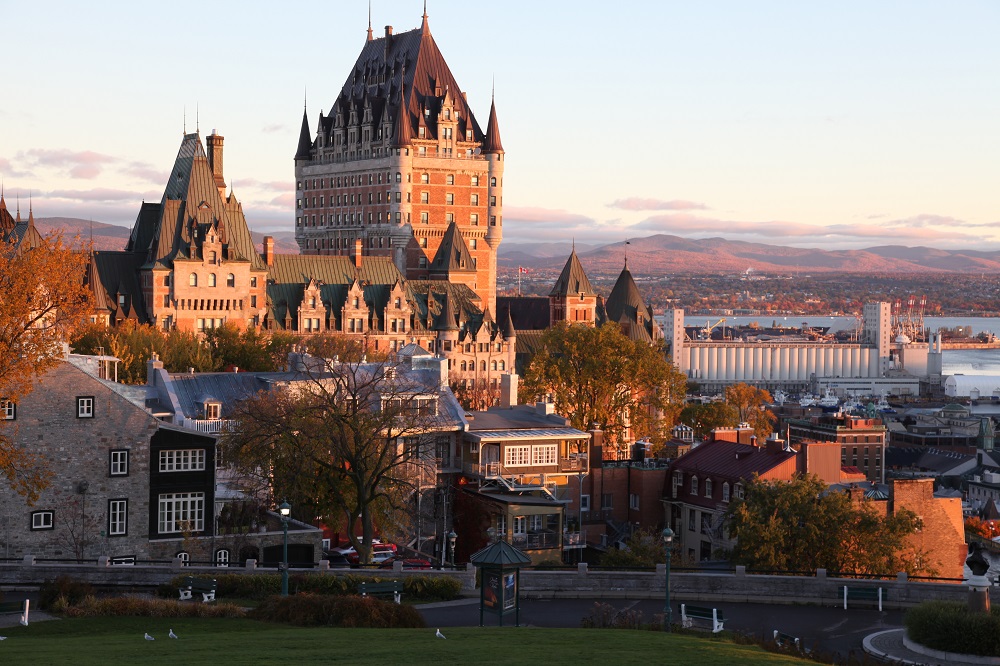Welsh the language of the home for 100 people in Canada, country’s census reveals

They may live between two and five thousand miles from Wales, but for 100 people living in Canada, Welsh is the language they speak from day to day at home.
Over 1,000 people filling in the 2021 census in Canada said that their mother tongue was Welsh, according to the latest data published from the survey.
1,130 people said that they spoke Welsh, while 830 described it on the census as their only mother tongue.
Of those, exactly 100 said that Welsh was the main language they spoke at home, with five living in Vancouver at the very far western end of Canada.
Welsh was the second most spoken Celtic language in the country, compared to 1,305 Irish speakers. Overall, 3,530 said that they spoke a Celtic language in Canada. 75 spoke Breton while Cornish did not feature in the census.
Meanwhile, 188,905 spoke Canada’s own indigenous languages, 7m spoke French and 21m English out of a total population of 36m.
‘Relevant’
The 2021 Census found that 4.6 million Canadians speak predominantly a language other than English or French at home, a number that was growing.
These individuals represent 12.7% of the Canadian population, a proportion that has been increasing for 30 years. By comparison, the proportion was 7.7% in 1991, when immigration levels were rising.
In addition, one in four Canadians in 2021—or 9 million people—had a mother tongue other than English or French. This was a record high since the 1901 Census, when a question on mother tongue was first added, StatsCanada said.
“Despite the impact that the COVID-19 pandemic has had on arrivals to the country, immigration has continued to enrich Canada’s linguistic diversity,” they said.
“The vast majority of the Canadian population commonly uses English and French, Canada’s official languages, to communicate and access services.
“Although both are spoken throughout the country, English is a minority language in Quebec, while French is a minority language in the other provinces and territories, as well as in Canada as a whole.
“Indigenous languages existed long before Canada was formed. As the International Decade of Indigenous Languages kicks off, the preservation, vitality and growth of the more than 70 distinct Indigenous languages spoken in the country remain as relevant and important as ever.”
Support our Nation today
For the price of a cup of coffee a month you can help us create an independent, not-for-profit, national news service for the people of Wales, by the people of Wales.






I do wonder about such claims. 100 families using Welsh at home. Yeah I can accept that, although are there perhaps a few exaggerations? Welsh is a living language, despite 1500 years of attempts to kill it. But 1300+ speaking Irish at home? Highly exaggerated IMO. In a population of 6 million, it is claimed 1 million speak Irish. The language was dying on its arris not that long ago. And though the efforts to resurrect it have been herculean and are worthy of praise, I’m not sure it is a living, working language just yet. I am sure that… Read more »
Yes, these numbers don’t sound quite right. Scots Canadians are the third largest ethnic group in Canada, and there are still several thousand Scottish Gaelic speakers in the Maritime Provinces, making it the most widely spoken Celtic language in the country. There was a move to make it the third official language in the early 20th Century when the numbers were much higher, but Westminster recommended against it, so the plan was dropped.
My reading of the article is that 100 people, not 100 families, speak mainly Welsh at home in all-Canada.
Aren’t there several hundred native Scottish Gaelic speakers in Cape Breton?
Several thousand throughout Canada. It’s undergoing a revival, but of course doesn’t get the financial support that Welsh gets in Wales, since it didn’t get made a third official language.
It’s Gaelic’s Y Wladfa! I was just curious how it didn’t make it into the article when Breton (and even the absence of Cornish) did. Plus Irish being the most represented Celtic language in Canada seemed puzzling.